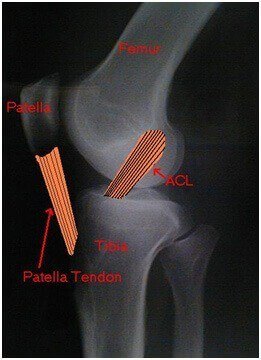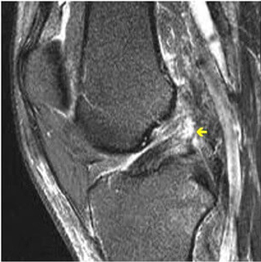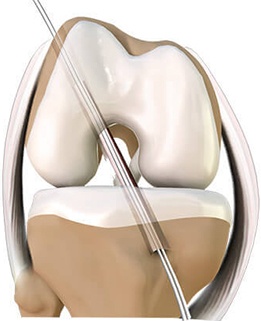ACL Reconstruction Surgery

The anterior cruciate ligament (ACL) is a tough, dense, connective tissue that is crucially important for stabilising ligaments in the knee and preventing the femur from sliding forward and creating discomfort and possible ACL injury by abnormally pivoting on the tibia. Knee reconstruction surgery relieves pain and restores the flexibility and stability needed for performing rotatory movements, twisting, and turning.
The knee can buckle painfully after a rupture of an ACL injury and become unstable, especially in younger, active individuals. The cruciate ligament does not spontaneously heal itself. Symptoms that generally require knee reconstruction are usually associated with injuries to joint cartilage, meniscus, bone and possibly surrounding soft tissue.
Risk factors that can lead to ACL reconstruction:
- Abnormal landing mechanisms after jumping. This is the most common cause of ACL injury for athletes.
- A narrow femoral notch can lead to a greater risk of injury. Women are at greater risk of sustaining injury as their femoral notch is narrower than men.
- Ligamentous laxity is a condition whereby a patient will have loose ligaments that can often bend beyond normal ranges of motion. This can increase the risk of the femur sliding and causing problems.
- An increased body mass index and general poor health and fitness greatly increase the risk of any injury, particularly exposing you to a possible knee reconstruction because joints are placed under more severe strain.

ACL rupture:
- Almost half of sufferers describe hearing a pop
- The majority display immediate swelling of the knee (due to bleeding into the knee joint)
- 50% may have meniscal tears
- A small percentage may have fractures, bone bruising or collateral ligament injuries that require ACL reconstruction
Diagnosis:
We provide expert diagnosis based on extensive knowledge, up-to-date procedures, a careful analysis of a patient’s history and the cause of injury as well as a thorough clinical examination and radiological imaging such as X-rays and MRI scans that will detect if knee reconstruction surgery is required.

Treatment:
- Focus on managing pain and swelling
- Restore movement in the knee and actively strengthen muscles
- ACL reconstruction surgical treatment recommendations will then be discussed with Dr. Nizam whose main aim is to get patients back to pre-injury activity levels – including sports – as soon as it is practical and safe to do so.
Click here for more information about anterior cruciate ligament and knee reconstruction.










